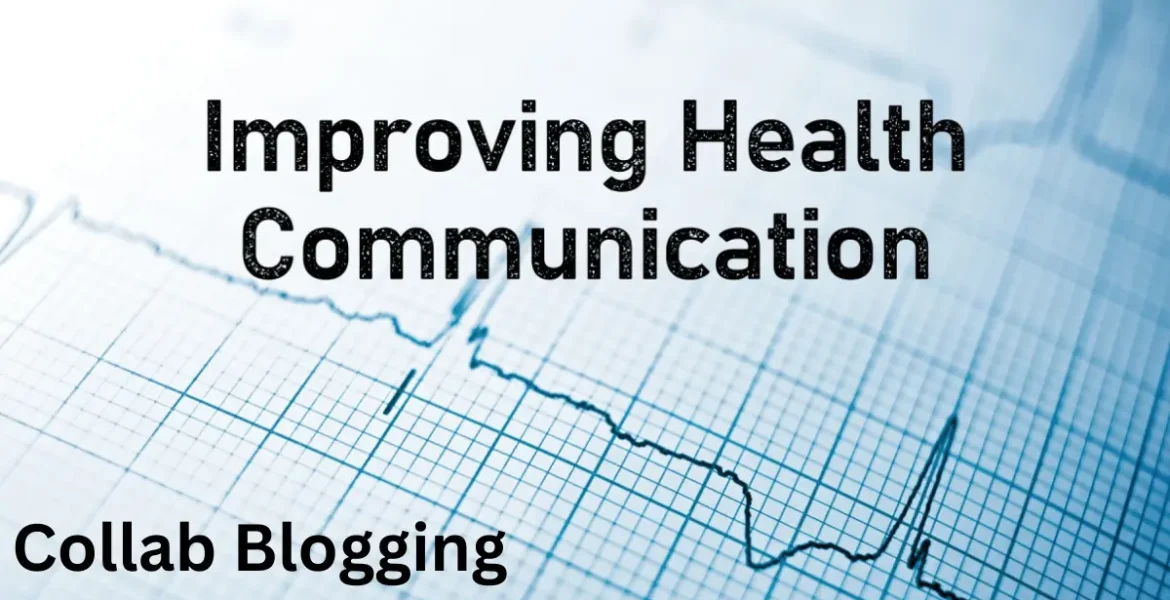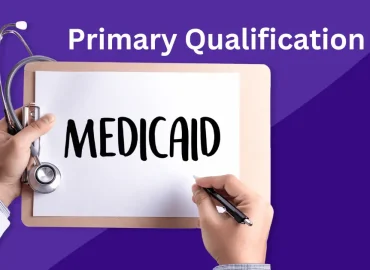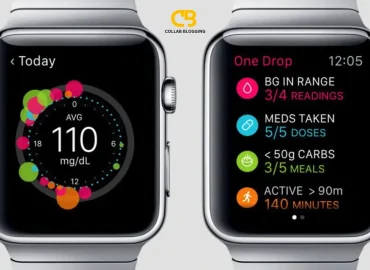Communication plays a key role in improving health. It helps people understand health issues and make better decisions. Good communication between healthcare workers and patients builds trust. It ensures patients feel heard and cared for. This leads to better treatments and outcomes. Without clear communication, misunderstandings can happen, and care may suffer.
In public health, communication spreads awareness. It educates people about diseases, prevention, and healthy living. Campaigns using simple messages reach more people. They encourage communities to take action. From mental health support to managing chronic illnesses, clear communication makes a big difference.
Table of Contents
The Role of Communication in Health
Communication is vital in the field of health. It bridges the gap between patients and healthcare providers, ensuring that important information is shared accurately. When patients clearly understand their health conditions and treatment options, they feel more confident in their care. This improves trust and encourages them to actively participate in the healing process. On the other hand, poor communication can lead to confusion, errors, and even harm.
In healthcare settings, clear communication enhances collaboration between professionals. Doctors, nurses, and other staff must exchange information effectively to provide the best care. Misunderstandings in these exchanges can delay treatments and reduce the quality of care. Ensuring that everyone understands their role leads to smoother processes and better patient outcomes.
In public health, communication serves as a powerful tool for education. Campaigns focused on spreading awareness about diseases and prevention reach large audiences. Simple, easy-to-understand messages motivate people to adopt healthier habits. This helps reduce the spread of diseases and improves community health. Communication also plays a key role in guiding individuals toward resources and services, making healthcare more accessible.
Enhancing Public Health Through Communication
Communication plays a big role in improving public health. It helps spread awareness about health issues, prevention methods, and treatments. Public health campaigns use clear and simple messages to educate people about important topics like vaccinations, hygiene, and healthy eating. These campaigns reach large groups, making it easier to inform and inspire positive changes.
Effective communication also helps address misinformation. By providing accurate and reliable information, it counters myths that can harm public health. Community outreach programs and social media are common tools for sharing this information widely. This keeps communities informed and better prepared to handle health challenges.
In emergencies, communication ensures quick action. Alerts about outbreaks, natural disasters, or public health risks guide people to safety and resources. This saves lives and prevents panic. Overall, clear communication helps communities stay healthy, informed, and proactive in taking care of their well-being.
The Role of Communication in Mental Health
Creating Safe Spaces for Expression
Communication plays a key role in improving mental health by creating safe spaces for people to share their thoughts and emotions. Open conversations help reduce stigma, encouraging individuals to seek help. Talking to trusted friends, family, or professionals can greatly assist in managing stress, anxiety, or depression.
Building Trust with Mental Health Professionals
For mental health professionals, clear communication is essential for building trust with patients. It allows therapists to understand their patient’s needs and develop personalized treatment plans. When patients feel heard and supported, they are more likely to experience positive outcomes. Miscommunication, however, can create barriers to effective care and hinder progress.
Public Awareness and Education
Public awareness campaigns use communication to educate people about mental health. These initiatives highlight the importance of seeking help and provide access to resources. Through media and community programs, clear and relatable messages make mental health a priority for individuals and society.
Communication and Chronic Disease Management
Empowering Patients with Information
Effective communication is crucial in managing chronic diseases. It helps patients understand their condition and treatment options. When healthcare providers clearly explain the details of a chronic illness, patients can make informed decisions about their care. This empowers them to take control of their health and manage symptoms more effectively.
Improving Adherence to Treatment
Clear communication also plays a role in improving adherence to treatment plans. When patients understand the importance of following their prescribed regimen, they are more likely to stick to it. Regular follow-up conversations help address any concerns or challenges, ensuring patients stay on track with their treatment.
Support Through Ongoing Communication
Chronic disease management requires continuous communication between healthcare providers and patients. Regular check-ins allow for monitoring progress and adjusting treatments if necessary. This ongoing dialogue builds trust and ensures that patients receive the right care at the right time, ultimately leading to better long-term health outcomes.
The Role of Technology in Health Communication
Telemedicine and Remote Care
Technology has revolutionized health communication, particularly through telemedicine. Patients can now consult with healthcare providers remotely, breaking down barriers such as distance or mobility issues. This makes healthcare more accessible, especially for those in rural areas or with limited access to traditional medical facilities.
Social Media in Spreading Health Information
Social media platforms have become powerful tools for spreading health information. Health organizations, experts, and public figures use these platforms to share educational content, raise awareness, and promote healthy behaviors. Social media’s wide reach ensures that health messages can be quickly disseminated to a large audience, influencing positive change.
Health Apps and Monitoring Tools
Technology also supports chronic disease management and wellness through health apps and monitoring tools. Patients can track their symptoms, medication, and progress, and share this data with their healthcare providers. These tools improve communication, making it easier to monitor health outside of clinical settings and adjust care plans as needed.
Enhancing Patient Education
Digital tools, such as online resources, videos, and webinars, have enhanced patient education. These technologies allow patients to learn about their conditions, treatments, and health strategies at their own pace. By making information easily accessible, technology empowers individuals to take charge of their health and make informed decisions.
Conclusion
Communication is vital for enhancing health. It helps people understand their conditions, treatment options, and preventive measures. Effective communication builds trust between healthcare providers and patients, leading to better care and outcomes. It also empowers individuals to take control of their health.
Public health, mental health, and chronic disease management all benefit from clear communication. It helps spread important information, reduces stigma, and improves treatment adherence. Technology has further strengthened health communication by making information more accessible.








View now
March 3, 2025 at 2:34 pmYour blog consistently captures my attention, compelling me to devour every word from beginning to end.
https://eric92111.alwaysdata.net/unveiling-reverse-phone-lookup-in-the-uk-discovering-unknown-callers/
🔒 Reminder; Transaction №WE45. NEXT => https://graph.org/GET-BITCOIN-TRANSFER-02-23-2?hs=03b473bfbebb25546dc943c5f7f25c49& 🔒
March 8, 2025 at 11:26 amxuvh2s
📘 Sending a gift from our company. Next >> https://graph.org/GET-BITCOIN-TRANSFER-02-23-2?hs=03b473bfbebb25546dc943c5f7f25c49& 📘
March 15, 2025 at 12:03 pmgmgdf6
Douglas
March 16, 2025 at 12:27 amI’m captivated by your ability to convert mundane subjects into interesting writing. Well done!
https://anchorurl.cloud
Jason
March 16, 2025 at 1:43 pmI eagerly anticipate your fresh and distinctive perspectives. It keeps me hooked for more.
https://byteshort.xyz
🖲 + 0.75683747 BTC.GET - https://telegra.ph/Binance-Support-02-18?hs=03b473bfbebb25546dc943c5f7f25c49& 🖲
March 20, 2025 at 10:40 amydre9f
📌 + 0.75335350 BTC.NEXT - https://graph.org/GET-BITCOIN-TRANSFER-02-23-2?hs=03b473bfbebb25546dc943c5f7f25c49& 📌
March 22, 2025 at 5:43 pmmt0aer
🔨 + 1.952651 BTC.NEXT - https://graph.org/Message--0484-03-25?hs=03b473bfbebb25546dc943c5f7f25c49& 🔨
March 29, 2025 at 6:40 pmtmfy43
📯 + 1.788123 BTC.GET - https://graph.org/Message--05654-03-25?hs=03b473bfbebb25546dc943c5f7f25c49& 📯
April 10, 2025 at 4:54 pmht7quy
Randal
April 16, 2025 at 2:59 pmI’m really inspired along with your writing abilities and also with the format
for your weblog. Is this a paid topic or did you customize it
yourself? Either way stay up the nice high quality writing, it’s uncommon to look a great blog like this one nowadays.
Fiverr Affiliate!
My site: Instagram Auto follow
📂 Notification; + 1,68343 BTC. Confirm > https://graph.org/Binance-04-15?hs=03b473bfbebb25546dc943c5f7f25c49& 📂
April 25, 2025 at 2:12 amfudrjt
📌 Reminder: TRANSFER 1.397896 BTC. Go to withdrawal =>> https://graph.org/Message--120154-03-25?hs=03b473bfbebb25546dc943c5f7f25c49& 📌
April 30, 2025 at 5:02 amp1fm1s
binance code
August 4, 2025 at 10:45 amThank you for your sharing. I am worried that I lack creative ideas. It is your article that makes me full of hope. Thank you. But, I have a question, can you help me?